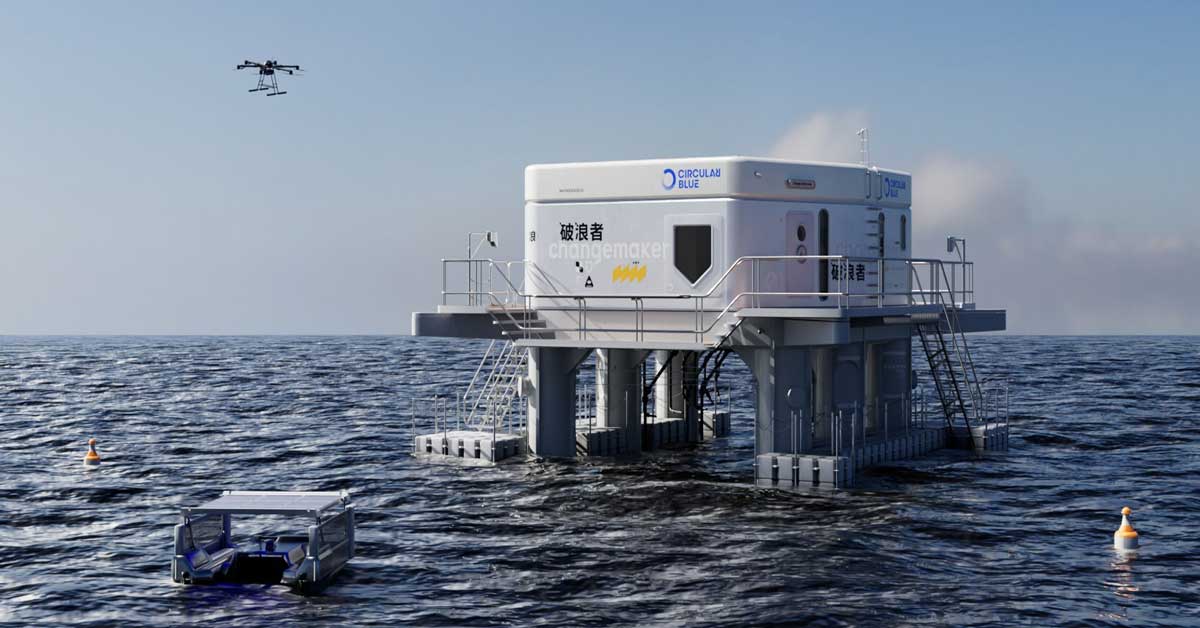Each year, more than 12.7 million tons of plastic enter the globe’s waterways. From here, it endangers marine life, coral reefs, and the global food chain.
While impressive cleanup efforts are underway — experts say the Great Pacific Garbage Patch could be cleaned up in just five years’ time — the oceans need all the help they can get to tackle plastic pollution for good.
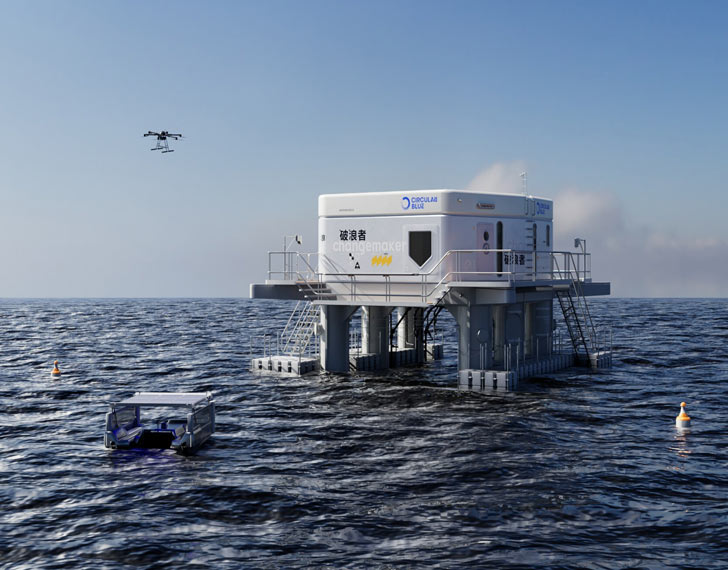
So, Rhinoshield, a Taiwanese phone accessory brand, has launched CircularBlue, a marine debris cleanup initiative that intervenes when plastic washes up on coastlines.
“We’re introducing a floating island, designed to intercept and process ocean waste along coastlines, the areas where 80% of this trash ends up,” a video introducing the initiative explains.
“CircularBlue operates like a robot vacuum for the ocean. Equipped with autonomous drones powered by AI, the system identifies and collects waste with precision. The island runs on solar energy and features an innovative seawater-driven system to minimize energy consumption while efficiently gathering trash for processing.”
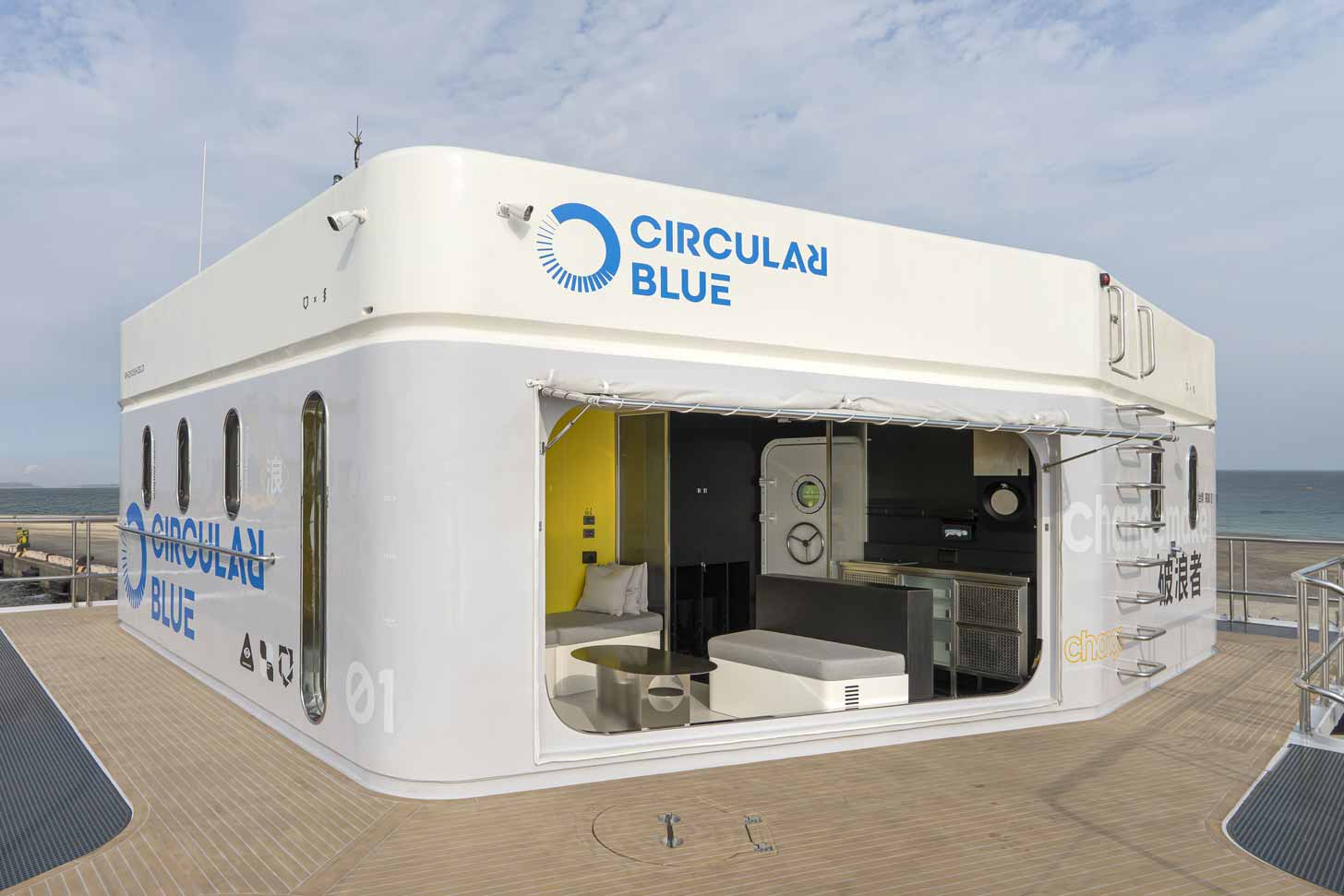
CircularBlue is a floating structure about half the size of a swimming pool, anchored about 1.86 miles offshore near Taipei. The island’s three-part system works together to collect and process trash that Rhinoshield will then use in its products.
One part of the system is a group of solar-powered floating platforms that passively collect trash using water jet propulsion. Another is a crew of “Scout Drones” that use artificial intelligence to detect and signal the location of the waste in the water. And lastly are GPS-guided “Surface Vessels” that retrieve that trash and collect it.
By developing a fully automated process, CircularBlue can work continuously in high-waste coastal zones without too much supervision.
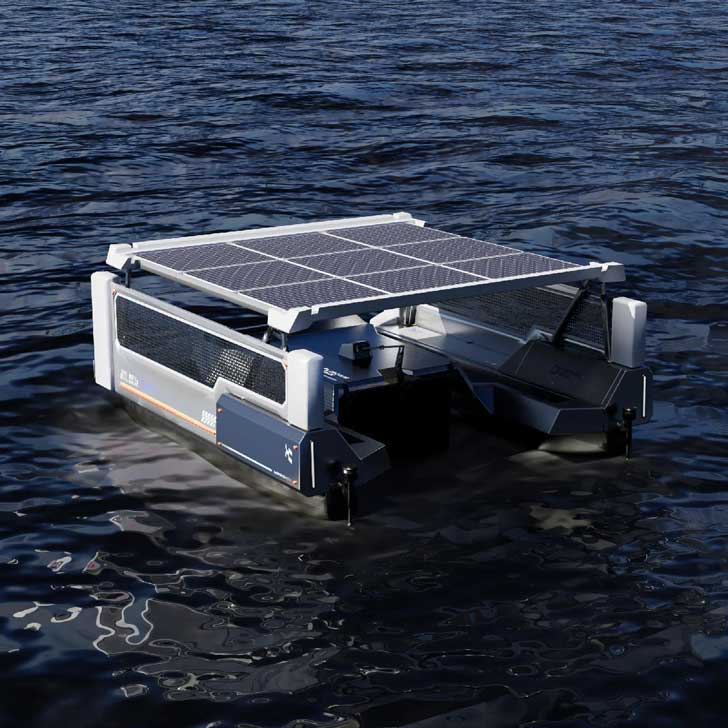
“Plastic pollution is the heavy legacy left by decades of human neglect and abuse,” Eric Wang, Rhinoshiled co-founder and CEO, said in a statement.
“Through CircularBlue, we are facing this challenge head-on — from coasts to rivers — using bold innovation and scalable solutions to clean up the past and protect the ocean's future.”
But you may be wondering: Why would a phone accessory company be behind this new initiative?
The brand has long promoted circular-design processes and now, they can better integrate the plastic collected through CircularBlue into their manufacturing.
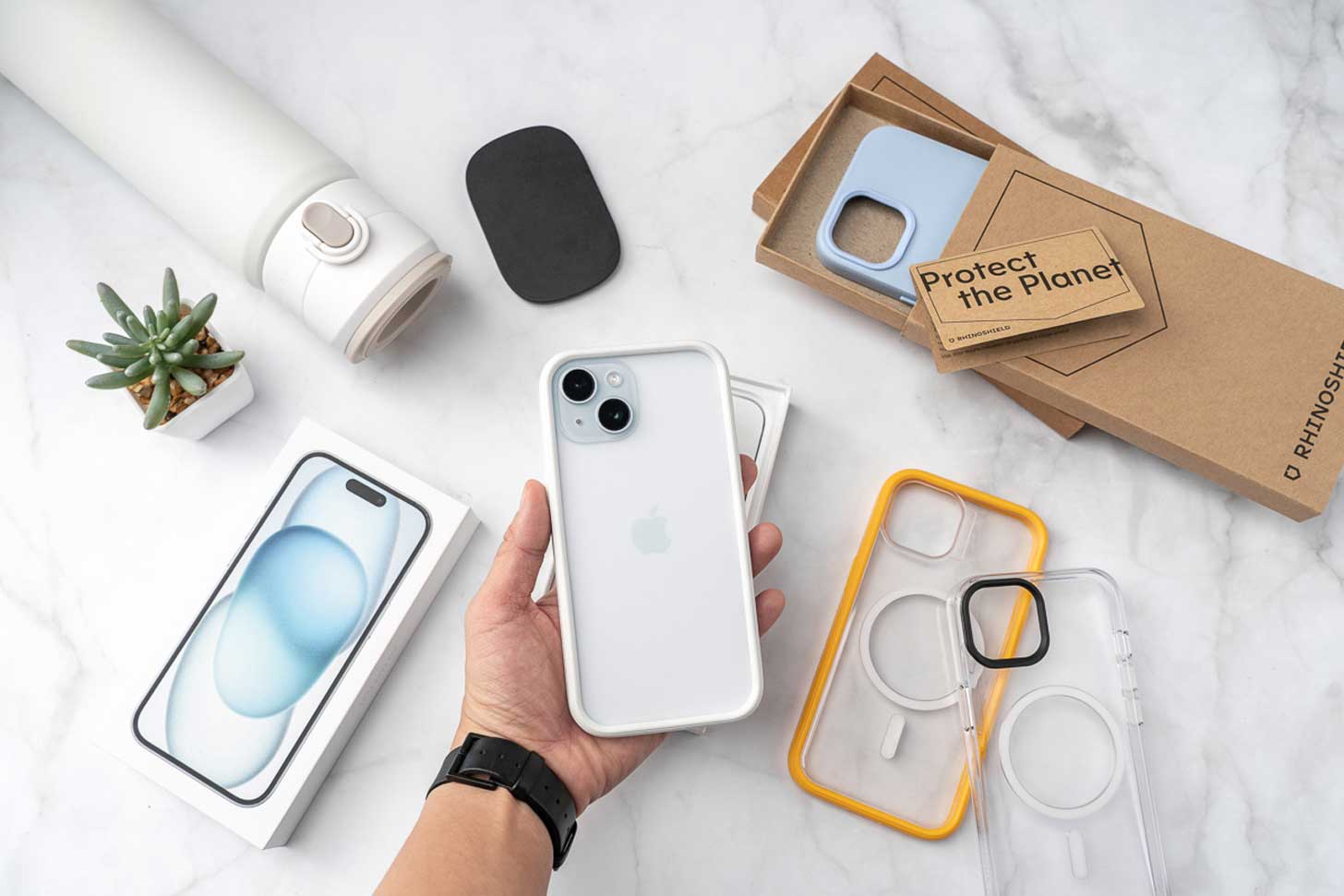
“Our plastic-focused business is fundamentally about protection; protection not just for products, but also for the planet,” the video continued.
“Last year, we achieved the milestone of CircularNext, ensuring our products don’t become waste. Now, we’re turning waste into products. This is the reason behind CircularBlue.”
CircularNext was Taiwan’s first fully circular phone case. The brand also has an initiative called Rhinoloop, where customers can reuse and recycle Rhinoshield products.
Rhinoshield also uses FSC-certified paper and vegetable based inks for its packaging, which eliminates more than 56 tons of single-use plastic annually.
“As nature becomes a rare commodity, humanity understands that civilization and nature aren’t opposing forces but a shared entity requiring wholehearted protection,” Rhinoshield’s website states.
“This is our mission: leveraging material technology to bring artificial creations closer to nature's circular principles.”

But CircularBlue isn’t just about business. The structure also includes on-board labs for vital ocean research.
“CircularBlue doubles as a floating research hub, featuring lab space for water testing, ecological monitoring, and educational use,” Rhinoshield’s website explains.
“Its modular design allows for easy scaling and adaptation, making it a valuable tool for both cleanup and coastal ecosystem studies.”
Ultimately, Rhinoshield’s investment in CircularBlue speaks to a foundational belief that nature and business must go hand in hand.
“Like our journey over the past 12 years, CircularBlue is built on creativity, resilience and a belief that sustainability can be both bold and collaborative,” Wang said.
“Together with partners around the world, we can restore the ocean we all cherish.”
Right now, CircularBlue is in a prototype phase, ensuring it can be fully operational without relying on humans and avoiding obstacles, while developers analyze the cleaner’s cost.
If it works, Rhinoshield plans to scale up and make an even bigger impact cleaning trash from oceans and coastlines.
“Ultimately, my expectation for this project is to find a scalable way to clear all the waste from the ocean,” Wang concluded.
“CircularBlue is more than a project. It’s a movement.”
You may also like: Environmentalists want to turn ocean garbage into hydropower. They're building a ship that does
Header image courtesy of Rhinoshield
